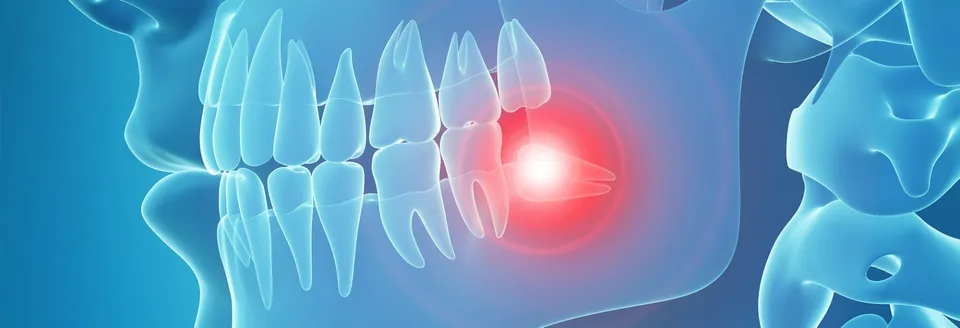I occasionally have a patient who comes to the office explaining to me that they “have TMJ” and they wonder if braces or aligners can fix it. Now, my wife will be amused at the thought of me being picky with grammar, as she can tell you that our 5th grader may have better grammar than me. Just kidding, I’m waaaay smarter than my 5th grader. He’s not even smart enough to get a job, drive a car, or pay a mortgage (ha ha?)…. Back to grammar, though: TMJ stands for temporomandibular joint, so technically, we all have a TMJ. What most people are referring to is actually TMD, temporomandibular disorder. If you have severe pain with chewing, opening your mouth, or other problems associated with your jaw joint, you may have TMD (not TMJ). If you have been using the phrase “TMJ” incorrectly, don’t worry – it’s a common misnomer. But if you really want to impress your dentist or orthodontist, you can use your new knowledge to show off a little!
Severe TMD problems can be very tricky to diagnose and manage. 95% of TMD problems are minor issues and are muscle-related. They are usually a result of an overuse of the jaw muscles. What can cause your TMJ to flare up and turn into TMD? Well, the TMJ is like other synovial joints (fancy word for joints that have a disc associated with them) in your body – using them too much can cause them to wear down over time. The disc between your lower jaw bone and your skull helps provide comfortable movement every time you open and close your mouth. It slides along the skull, allowing you to open your mouth really wide.
Things that can cause stress on the joint include:
- Clenching/grinding your teeth
- Eating too many chewy foods (e.g., beef jerky and gum)
- Habits like biting on pens or nails
- Playing tug-of-war with your dog using your mouth (please don’t do this)
The common theme here is that all of these things can lead to over-using your jaw muscles. Using your jaw muscles a lot doesn’t always lead to TMD, but it can make them sore and cause your joints to feel fatigued and sometimes create joint discomfort. It can also cause headaches since some of those jaw muscles connect the lower jaw to the skull, and if they are pulled on too much, your noggin’ may start achin’.
Because true jaw disorders (such as anatomical problems with the jaw joint or problems with the disc in the joint) are fairly rare, dental professionals try the most conservative approach first to make sure the problem isn’t muscle-related. This includes encouraging patients to stop all habits that lead to overusing the jaw muscles (chewing gum, eating jerky, clenching your teeth, etc.). I know it can be difficult to stop clenching in your sleep – most commonly, we will start with a night guard, or “splint,” to help all of your lower teeth hit at the same time on the appliance. The night guard is also a bit bulky, so it doesn’t allow you to bite down all the way and use the maximum force of your jaw muscles, helping them to relax a little bit and hopefully lead to less headaches and jaw popping. It’s also important to frequently check your bite and be aware of how your teeth are touching – are they touching uniformly? Sometimes after a recent filling or crown from the dentist, the teeth settle into a new position and the teeth bite a little differently than they used to. If you have had a recent filling or crown and feel that one tooth is hitting before all the rest of the teeth when you bite down, call your dentist and ask him/her to adjust it for you.
Once we’ve tried the splint method and your bite is proper and comfortable, if the TMD pain and problems continue, it might be more of an anatomical issue that should be examined by an oral surgeon to discuss surgical options. This is the last resort, so every method of trying to get comfortable should be tried before surgery.
So back to our first question – can braces or aligners help with TMD problems? There is a lot of scientific research on the effect of orthodontic treatment as it relates to TMD, however, the evidence is unclear. I would never advise a patient with TMD problems that braces will fix everything. In my professional opinion, I do believe that aligning the teeth and fixing the bite can have some benefits to keeping you pain-free. In my treatment of thousands of patients, I have noticed that patients with imperfect bites tend to show more wear on their teeth than patients with perfect bites – and this theory has been proven by some research. Yes, braces can help TMD issues, but they are not a “guaranteed fix.”
Dr. Nelson is an Orthodontic Specialist who completed his dental training at the Ivy League University of Pennsylvania and his orthodontic residency at the renowned St. Louis University. You can request a consultation or call the office at (760) 290-3932 with additional questions.
